Berlin is one of the liveliest cities in Germany. It’s the capital and home to 3.6 million residents. Living in Berlin as an expat has become extremely popular- and it’s not surprising at all, considering all that Berlin has to offer.
Berlin has a reputation for attracting artists, professionals, creatives, and wanderers from all over the world.
Whether you’re an up-and-coming artist trying to make it in the art world, an entrepreneur looking to found a start-up, someone looking to start a career in tech, or someone looking for an urban retirement, Berlin surely has a place for you.
Here are five essential questions you need to ask about living in Berlin before you move. Our guide provides the answers to help you get a feel for Berlin as your possible destination.
Secure Peace of Mind with Best-Value International Health Coverage
International Citizens Insurance provide free, no-obligation quotes from the leading international health insurance providers with plans tailored to meet your needs. Trusted by thousands of expats worldwide.
Highlights of living in Berlin
Berlin is certainly a great place to live for expats. It’s a trendy, metropolitan, and fast-paced city that is rich in history. From young professionals to families and retirees, there’s a neighborhood in Berlin that’s suitable for you.
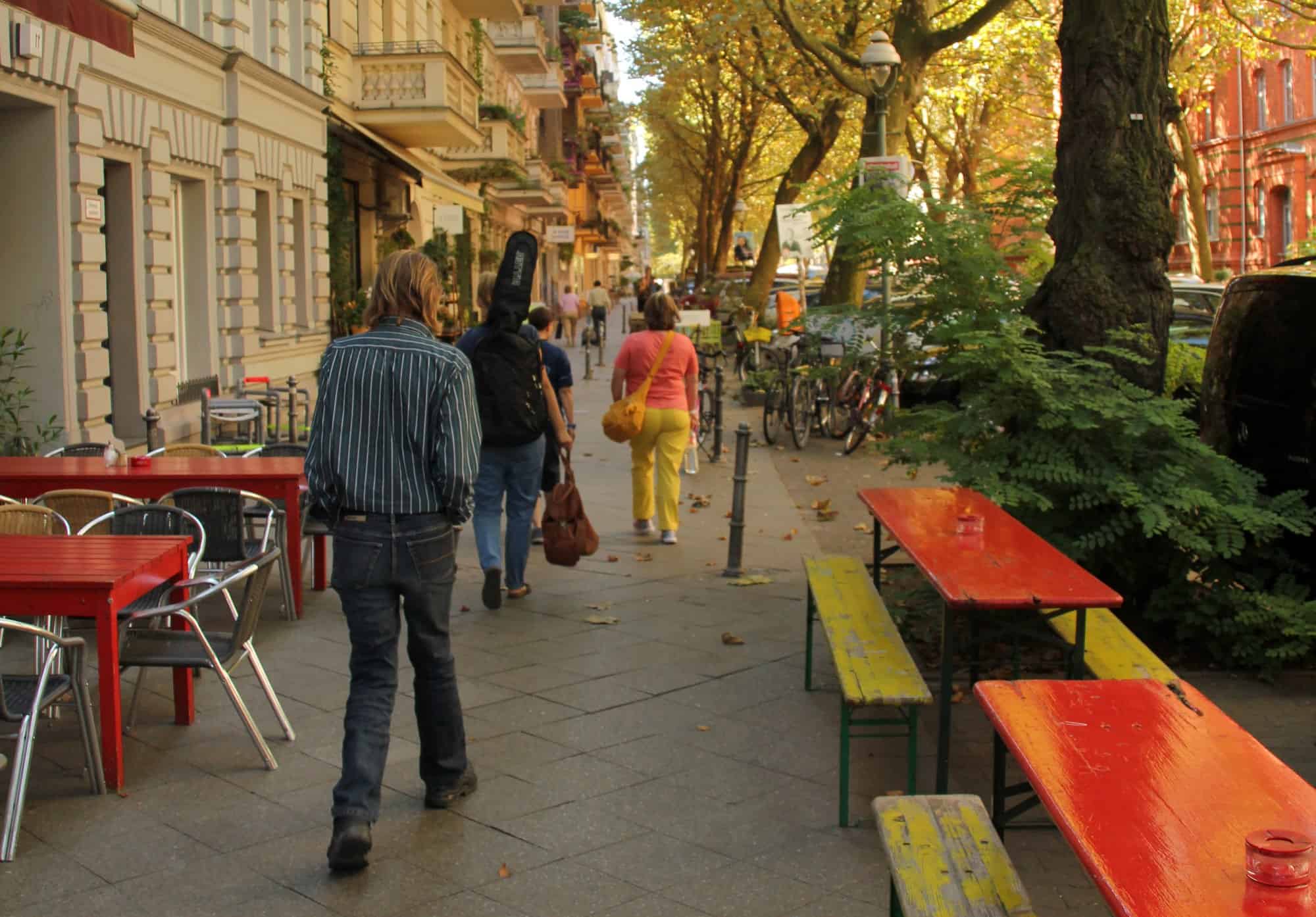
Additionally, Berlin has amazing job opportunities across industries. From hospitality to finance, the opportunities are vast.
There’s also a huge startup and entrepreneurial culture in Berlin.
If you’re an expat who hasn’t perfected the German language yet, you will find it easier to find a job in Berlin where you can speak English. It helps that around 35% of the population of Berlin is made up of those with international backgrounds.
Since Berlin is the capital of Germany and the population is made up of such varying nationalities, it’s very liberal and tolerant compared to other more conservative cities.
You’ll find a huge variety of people with different styles, cultures, religions, political beliefs, and much more in Berlin- so there is no need to worry about “fitting in.”
Like most German cities, Berlin boasts a very impressive public transportation network- getting around via metro, bus, or tram is always an option here- you can definitely get by without a car.
Keep in mind, however, that Berlin is a very large city (9 times the size of Paris), so while the public transportation is vast, it can be time-consuming to travel to the different parts of Berlin.
Additionally, although Berlin is a capital city, it’s surprisingly affordable compared to other capital cities around the world. More on that later.
The cost of living in Berlin
Living in Berlin is much more affordable than in other capital cities around Europe. Surprisingly, Berlin is not even among the top 10 most expensive cities in Germany. However, I wouldn’t say it’s “cheap.”
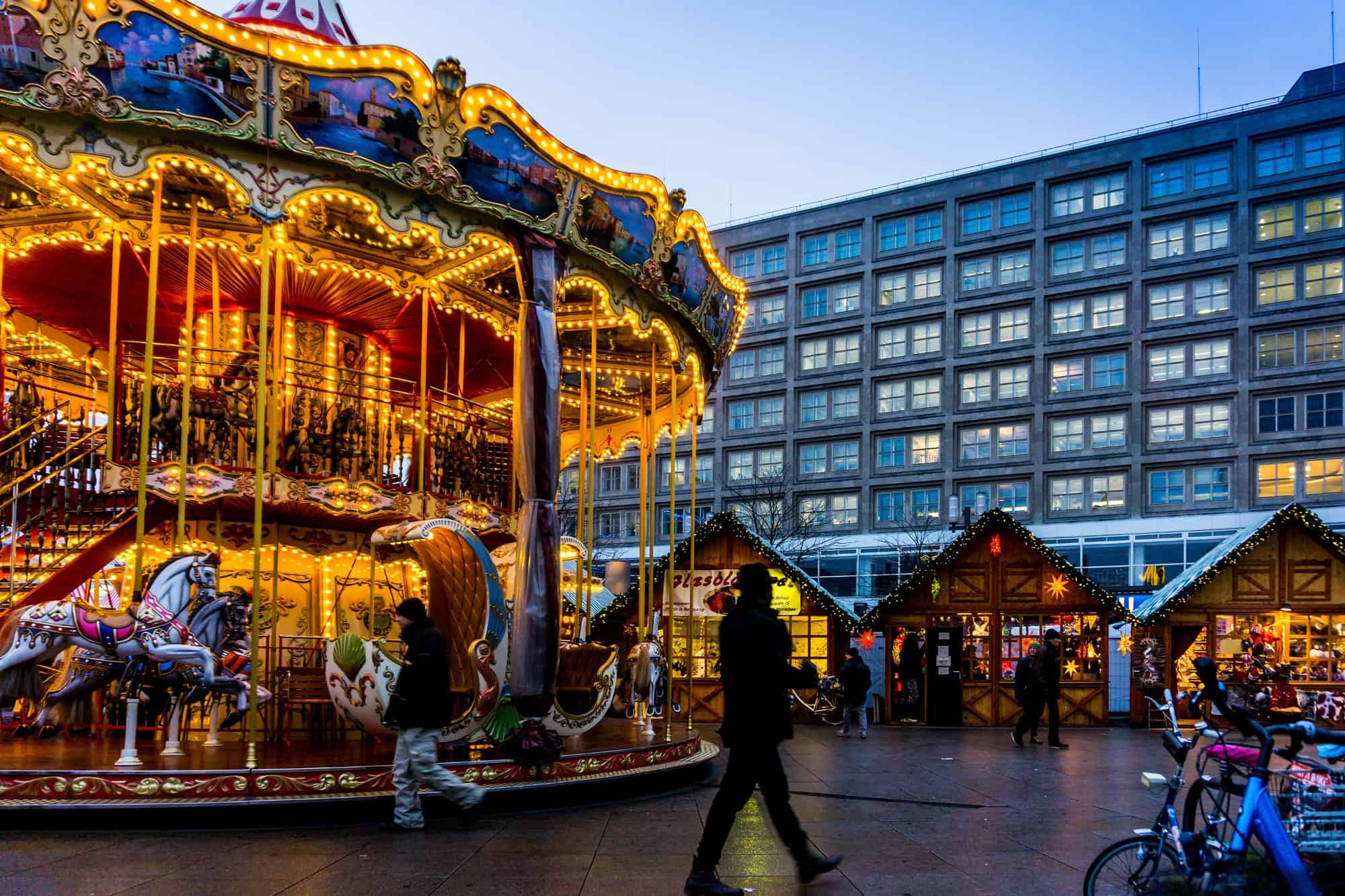
The cost for daily needs such as groceries, gas, clothes, etc. aligns with other German cities.
The most expensive thing about living in Berlin is definitely the rent.
Monthly rent for a furnished studio apartment at around 45 sq meters ranges from €750-1100; prices vary greatly depending on the neighborhood.
You can find more information on rentals and the rental process in Germany in our guide, How To Rent A Property In Germany.
Going out for lunch will run you about €11, having a basic meal at a pub for two will be around €25, and having a proper dinner for two will be around €35, and a fast-food meal from a chain restaurant will be around €8.
Here’s a further breakdown of other costs:
- Utilities: starting from €102 depending on the size of your flat/house
- Electricity: €40+
- Gas: €1.62/liter
- Monthly Transport Ticket: €84
- Groceries: €40-50/week, varies depending on where you shop: Aldi will be more affordable than Rewe or Edeka, for example.
- Cappucino: €3.00
- Gym membership: basic €25+
- Internet: €32+
- Phone contract w/major provider (i.e., T-mobile, O2): €9.99-30. Prepaid contracts can be as cheap as €6/month, depending on your data needs.
- Beer at a restaurant/café: €3-4
- Cocktail at a restaurant: €8+
All in all, Berlin is a very affordable place to live, especially considering it’s a capital city in Western Europe.
Another good thing to keep in mind is that since German tax rates are so high, you will need to earn in the range of €40,000+ to live a truly comfortable life in Berlin.
Safety
Like most capital cities, Berlin has the worst crime rating in Germany.
However, Germany as a whole is extremely safe, so the level of crime in Berlin is still what professionals would describe as moderate.

There are petty crime and pickpockets in Berlin, along with organized crime. Luckily these crimes tend to be non-violent, which is a huge plus.
Bicycle theft is something that is very common as well, so invest in a heavy-duty bike lock, and always try to lock your bike to something.
Berlin is quite large, so it’s hard to detail exactly which places you should avoid, but here is a list of some places that I would recommend avoiding at night, especially if you are alone:
- Alexanderplatz - this one might be surprising, but at night I would avoid it as it gets very sketchy.
- Leopoldplatz - a huge hub for drug usage
- Kottbusser Tor - this is the center of Kreuzberg
As always, trust your gut, try to avoid sketchy places at night, and be aware of your surroundings.
Expats in Berlin
Berlin is absolutely expat friendly. There are neighborhoods that even have a reputation for being “expat” neighborhoods.
Since a large part of Berlin’s population has international roots, Berlin is a great place for expats.
Berlin isn’t just suitable for young professionals; while the population of Berlin is quite young, it’s still a good option for families and retirees.
Not every neighborhood in Berlin is filled with young people partying until 8 am in the morning. There are sleepier parts of Berlin that are appropriate for other demographics.
It will be much easier to find a job in Berlin as a non-German speaking person compared to other cities like in Southern Germany, for example. Many, if not most, speak English which is a huge plus when relocating to a different country.
However, I always like to remind expats: if you plan on living in Germany long term, learn a little bit of German. It goes a long way! Even if you have an intermediate level of German, this can increase your job prospects and ease of daily life greatly.
The best neighborhoods to live in Berlin
Berlin is quite a large city, and finding a flat is certainly no easy feat. But there is a place for everyone. Let’s dive in.
Great neighborhoods for expat families
1. Marzahn-Hellersdorf
This neighborhood is very green, away from the hustle and bustle of Berlin nightlife and isn’t terribly far from the city center.
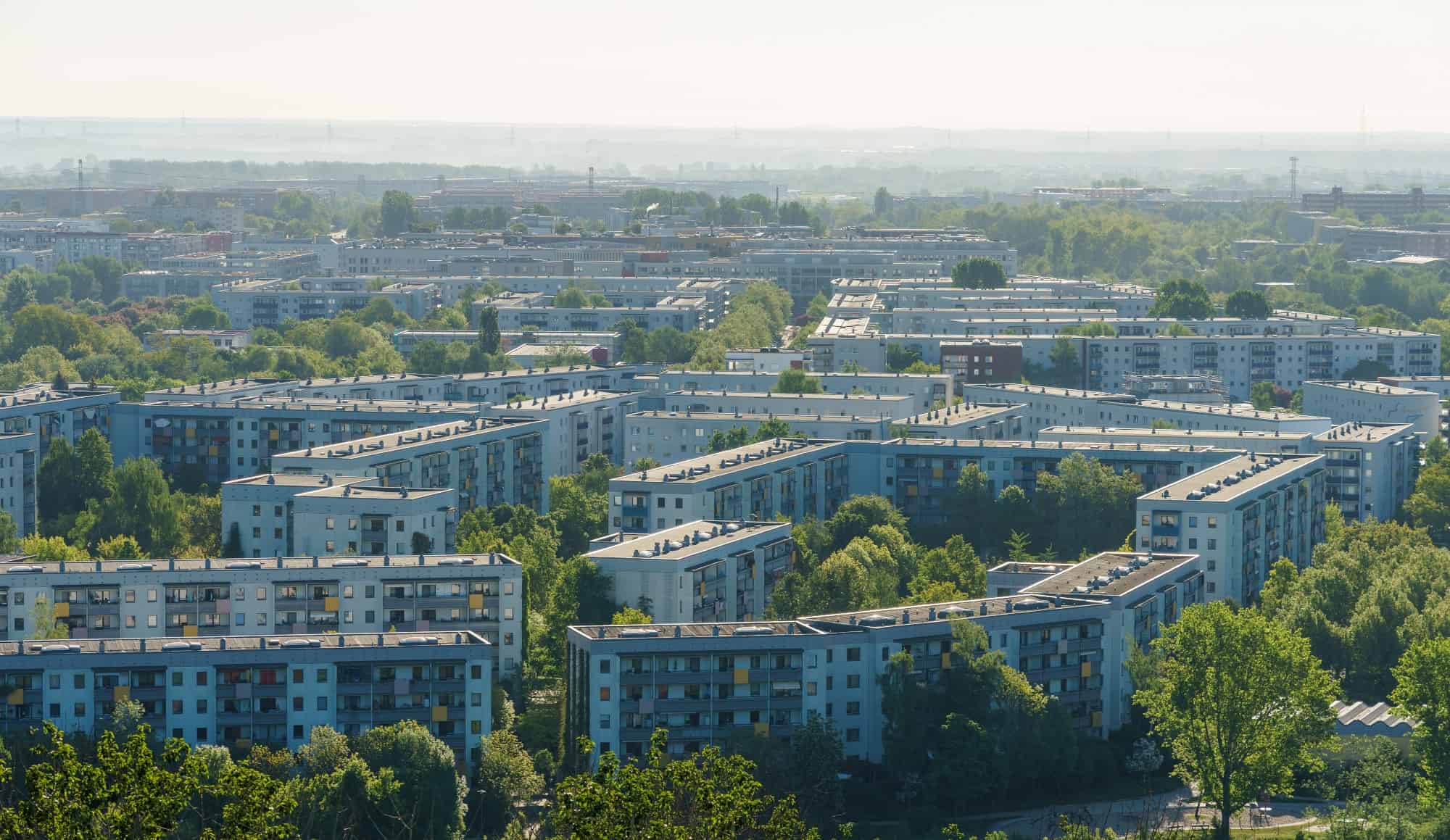
This is a great area for someone who is fine with living outside of central Berlin as long as it has everything that a family might need.
Another huge plus is that this neighborhood is quite affordable!
2. Southern District of Tempelhof
If you want to be close to the city center but still be in a place that’s suitable for kids, then the southern district of Tempelhof is a great option.
A huge park in the center of this neighborhood offers a ton of green spaces where children can play.
3. Prenzlauer Berg
This is definitely a pricier option, but this neighborhood is great because while it is in central Berlin, there are a ton of great offerings for children.

This area boasts lovely green spaces, playgrounds, stores, etc. It’s also conveniently located away from the Berlin nightlife scene.
Great neighborhoods for expat young professionals
1. Friedrichshain
This neighborhood is home to the infamous Berlin nightclub Berghain. But that’s not all it has to offer. This area has many different cafes, coworking spaces, parks, and green spaces.
2. Mitte
Berlin Mitte is home to a lot of the famous Berlin tourist attractions you hear about. Here you’ll find tons of art galleries, coworking spaces, fascinating museums, and historical architecture.
There's a special metropolitan flare in this part of Berlin. The downside is it’s quite expensive to live in this part of town.
3. Kreuzberg
This neighborhood is a great option for expats.
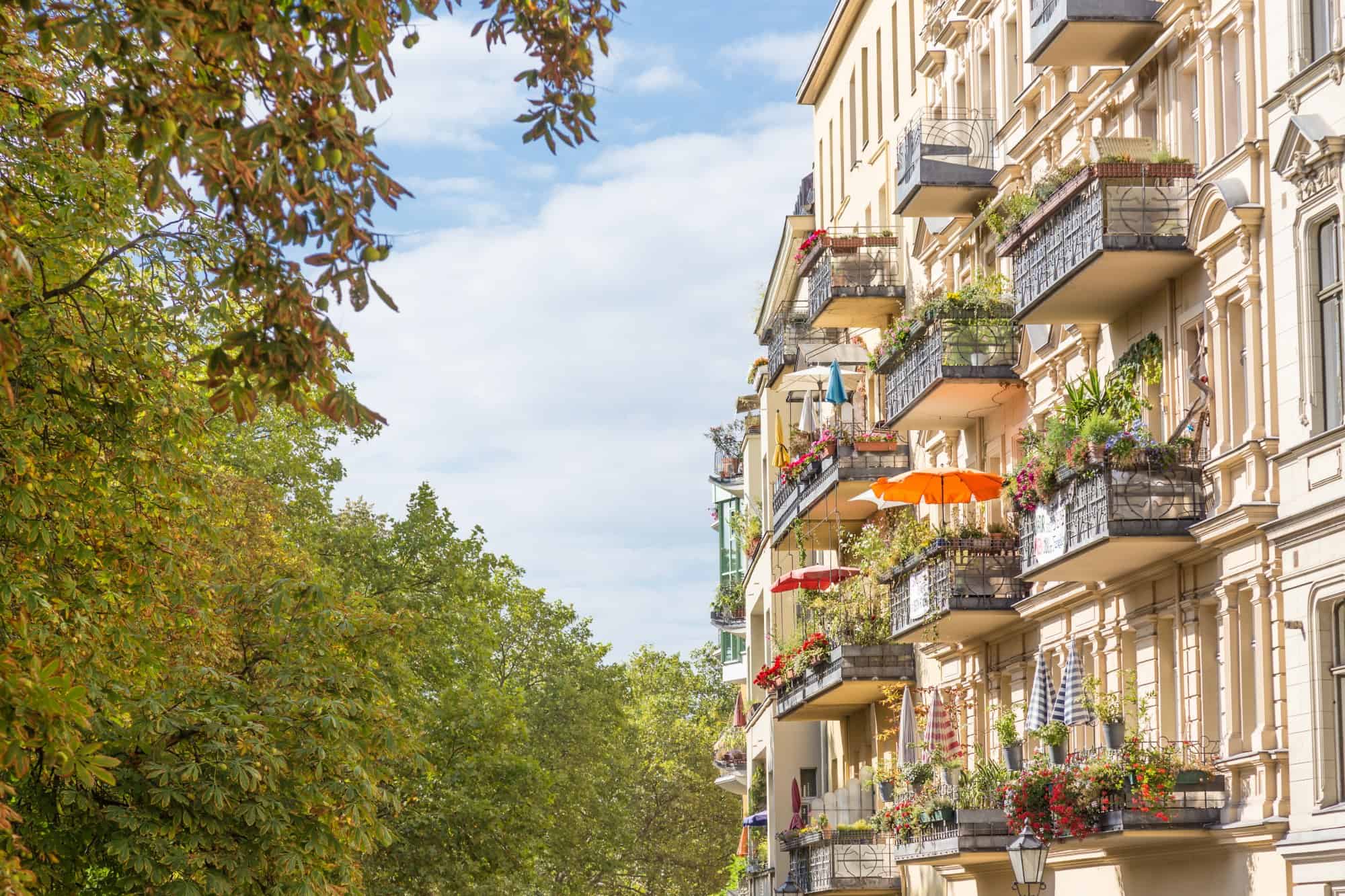
Kreuzberg is known for its nightlife, street art, and a large number of expat residents. There are lots of trendy nightlife options here, and the scene is quite an alternative if that’s your thing.
Great neighborhoods for expat retirees
1. Wilmersdorf- Charlottenburg
Wilmersdorf is home to many expats, and while it may be located in central Berlin, it has a much more relaxed and quaint energy than other neighborhoods.
It’s a great place to be if you want to be away from the more “hipster” parts of town. However, you will find it a bit more expensive than other neighborhoods.
2. Spandau
This old town located on the west side of Berlin is famous for its parks and unique canals.
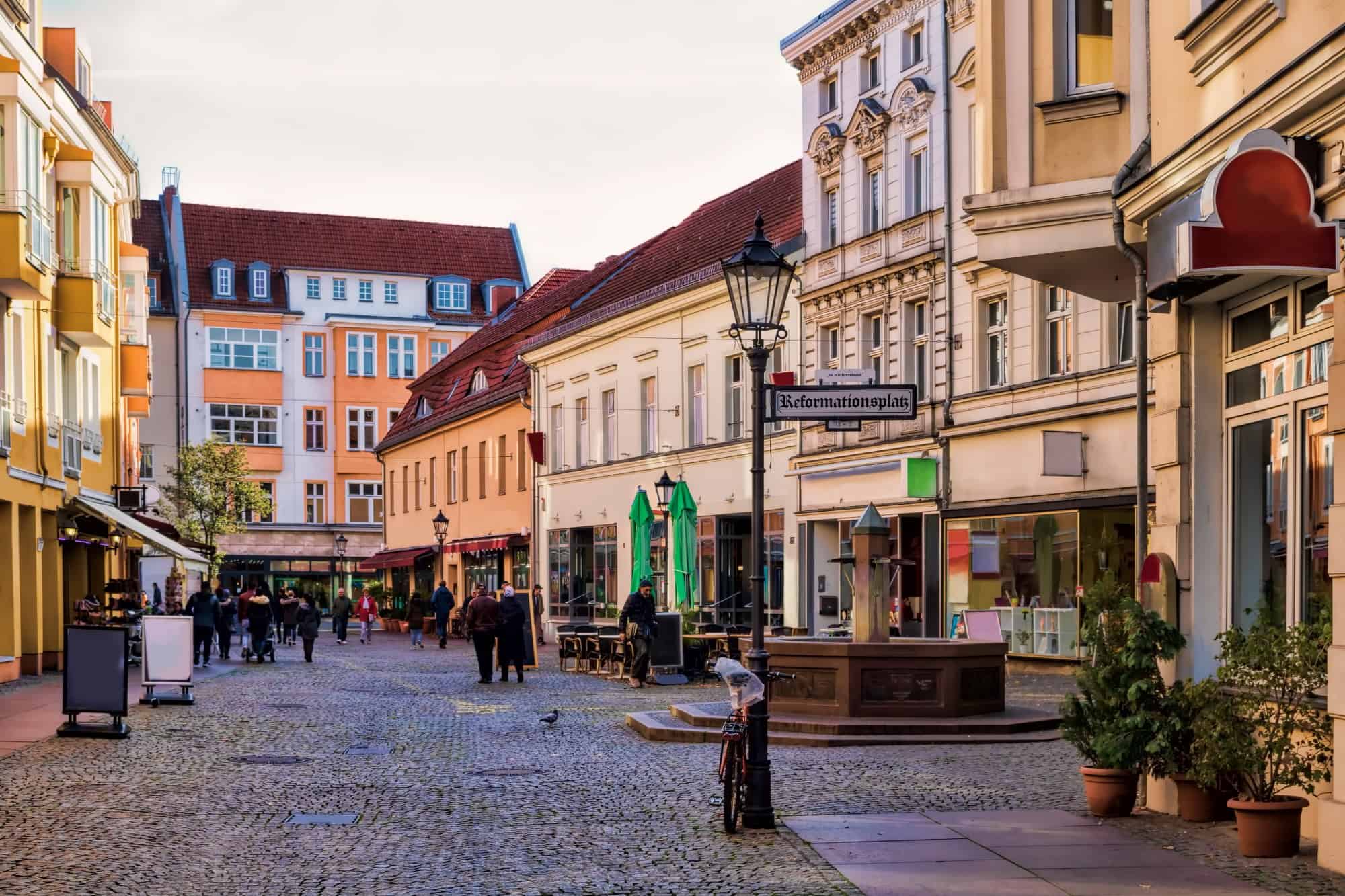
History lovers are sure to fall in love with this area. It’s also relatively quiet, which makes it suitable for retirees and families alike.
Final thoughts on living in Berlin as an expat
Living in Berlin is a great option for expats. The city is rich in culture, history, amazing nightlife, great food, great art, and so much more.
It's quite affordable for a major city, the expat community is large, and the opportunities are endless. Whether you choose to live in a super hipster part of town like Neukölln or opt for a quieter option such as Tempelhof, you are sure to find a place in Berlin that you can call home.
You might find useful:
Helpful external links:
- All about public transport in Berlin in Berlin.de
Secure Peace of Mind with Best-Value International Health Coverage
International Citizens Insurance provide free, no-obligation quotes from the leading international health insurance providers with plans tailored to meet your needs. Trusted by thousands of expats worldwide.




